Getting ready to buy a home is exciting, but before you jump in, you need to prepare for a mortgage. A mortgage is a big loan that helps you buy a house; getting approved isn’t always easy. Lenders want to ensure you can pay them back, so they check your finances carefully.
The good news? If you prepare for a mortgage correctly, you can boost your chances of approval and even get better loan terms. This blog will walk you through everything you need, from understanding mortgage basics to getting pre-approved.
Let’s get started!
Understanding Mortgage Basics
Before applying, it helps to know the basics. A mortgage is a loan particularly for buying a home. You’ll pay it back over time, usually 15 to 30 years. Here are the main types:
- Fixed-Rate Mortgage: Your interest rate stays the same for the entire loan.
- Adjustable-Rate Mortgage (ARM): Your rate changes over time based on the market.
You’ll also hear terms like:
- APR (Annual Percentage Rate): The total cost of your loan per year, including fees.
- Loan-to-Value Ratio (LTV): How much you’re borrowing compared to the home’s value.
Knowing these terms helps you prepare for a mortgage and talk confidently with lenders.
Assessing Your Financial Situation
Lenders look at three big things: your credit score, income, and debt.
Check Your Credit Score
Your credit score shows how smartly you handle debt. A higher score (670+) means better loan terms. To improve it:
- Pay bills on time.
- Keep credit card balances low.
- Avoid opening new credit accounts before applying.
Look at Your Income & Debt
Lenders calculate your debt-to-income ratio (DTI), how much you owe vs. how much you earn. Ideally, keep your DTI below 43%.
Documentation Needed
Lenders ask for a lot of paperwork. Having these ready speeds up the process:
- Proof of Income: Pay stubs, W-2s, and tax returns.
- Bank Statements: Show savings and spending habits.
- ID & Social Security Number: For verification.
- List of Debts: Credit cards, student loans, and car payments.
Organize these early to avoid last-minute stress!
Setting a Budget
Just because a lender approves you for a big loan doesn’t mean you should take it. Think about:
- Monthly Payments: Can you comfortably afford them?
- Extra Costs: Property taxes, insurance, maintenance, and repairs.
A good rule? Keep housing costs under 30% of your income.
Researching Mortgage Options
Not all lenders are the same. Compare:
- Interest Rates (Lower or Less Cost Over Time).
- Loan Terms (15 vs. 30 Years).
- Fees (Some lenders charge more upfront).
Shopping around can save you thousands!
Getting Pre-Approved
A pre-approval is a game-changer. It shows sellers you’re serious and tells you exactly how much you can borrow.
Pre-Qualification vs. Pre-Approval
- Pre-Qualification: A quick estimate (no deep credit check).
- Pre-Approval: A more substantial commitment from a lender (full financial review).
Steps to Get Pre-Approved
- Pick a Lender (Banks, credit unions, or online lenders).
- Submit Documents (Income proof, credit check).
- Get Your Pre-Approval Letter (Usually valid for 60-90 days).
With pre-approval, house hunting gets easier!
Tips to Prepare for a Mortgage
- Fix Credit Errors: Check your report for mistakes.
- Save for a Down Payment: 20% avoids extra fees, but some loans accept less.
- Avoid Big Purchases: New cars or loans can hurt approval chances.
Wrap Up
Preparing for a mortgage can be overwhelming, but understanding the basics, assessing your finances, and getting pre-approved can ease the process. Keep an eye on your credit score, save for a down payment, and explore mortgage options to secure the best deal.
Diverse Mortgage Group is here to guide you through every step of the process. Let us help you prepare for a mortgage and secure the loan that’s right for you.
Get in touch with us today for expert advice and personalized mortgage services.
Frequently Asked Questions
How far in advance should I prepare for a mortgage?
Ideally, start 6-12 months before applying. It gives you time to improve your credit score, save for a down payment, and gather necessary documents. The better prepared you are, the smoother the process will be.
What credit score do I need to get a mortgage?
Most lenders prefer a credit score of 620 or more for conventional loans. For government-backed loans (like FHA), you may qualify with a 580 or even lower (with a higher down payment). A higher score means better interest rates!
How much down payment do I need?
While 20% down avoids private mortgage insurance (PMI), many loans allow less:
- FHA Loans: As low as 3.5% down
- Conventional Loans: 3% to 5% down (with PMI)
- VA & USDA Loans: 0% down (for eligible buyers)
Can I get a mortgage with student loan debt?
Yes, Lenders look at your debt-to-income ratio (DTI). You can still qualify if your monthly debts (including student loans) don’t exceed 43% of your income. Some lenders even exclude deferred student loans from calculations.


